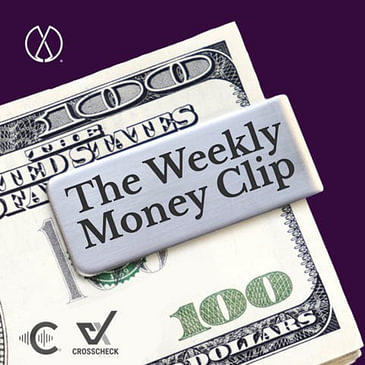Get ready for a deep dive into the dynamic world of finance with this week's episode of "The Weekly MoneyClip," premiering March 25th. Join our esteemed panel of financial experts, including Tom Hayes, Mitch Roschelle, Josh Hammer, Scott Stantis, and Jake Novak, as they unpack the latest market earthquakes and unveil hidden economic gems. From the groundbreaking Google-Apple partnership's seismic impact to the nuanced forecast of the Fed's future interest rate cuts during the Presidential election cycle, each segment delves into the heart of today's financial frontier. Whether you're an investor seeking strategic insights of a market enthusiast hungry for fresh perspectives, this episode is your passport to staying ahead of the curve in an ever-evolving economic landscape.
"The Weekly Money Clip" is a CenterClip production, distributed via CrossCheck Media
#WeeklyMoneyClip #FinancialAnalysis #Google #Apple #Intel #Fed #InterestRates #Economy #Japan #TomHayes #MitchRoschelle #JoshHammer #ScottStantis #JakeNovak
Social Connections:
Please be sure to Subscribe to the CrossCheck Media Channel on YouTube.
Twitter: @XCheckMedia, @BuyHoldSellTV, @BizTalkTodayTV, @CenterClipAudio, @ScottStantis, @Mitch_Roschelle, @jakejakeny, @HedgeFundTips, @josh_hammer
Instagram: @CrossCheckMedia
- Weekly MoneyClip analysis
- financial news
- market analysis
- economic forecast
- investment insights
- Apple
- Fed minutes
- Interest rates
- Intel
- semiconductor industry
- Japan interest rates
- U.S. antitrust lawsuite
- stock market analysis
- CrossCheck Media
- Biz Talk Today TV
- BTT
- Todd M Schoenberger
- financial news
- market analysis
- investment insights
- economic forecast
- Apple
- Fed minutes
- interest rates
- Intel
- The Weekly MoneyClip


